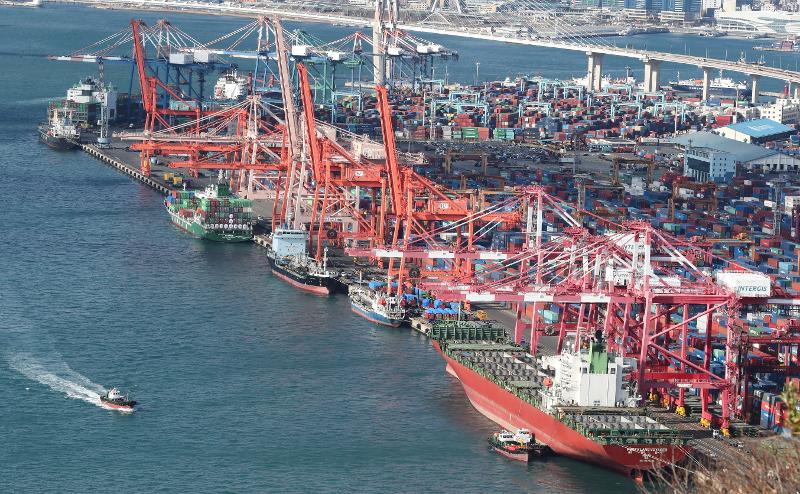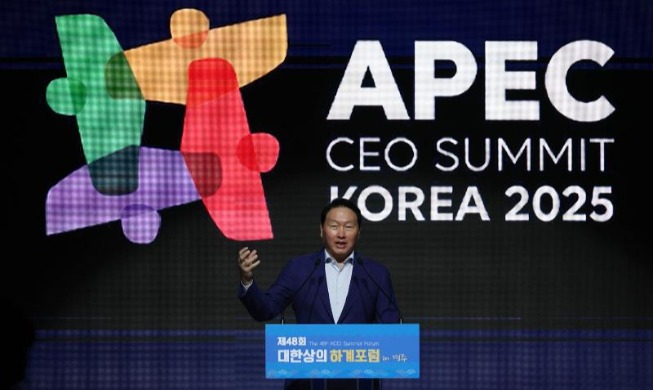
Foreign direct investment in the nation's free economic zones surged 43% last year. Shown here on Dec. 1 is the Port of Busan. (Yonhap News)
By Kim Eun-young and Kim Hayeon
Foreign direct investment (FDI) in the country's free economic zones (FEZs) soared 43% last year.
The Ministry of Trade, Industry and Energy on Jan. 4 said last year saw USD 1.31 billion worth of pledged FDI, up 42.8% from 2020, and USD 840 million in made FDI, up 126%.
This is the nation's best performance in the sector over the past three years. Pledged FDI reached USD 1.69 billion in 2017-18 but fell to USD 1.02 billion in 2019 and USD 910 million in 2020.
The cumulative amount of pledged FDI since the country's adoption of FEZs in 2003 thus reached USD 20.5 billion.
The ministry said in a statement, "This significant achievement amid the entry of FEZ development into a mature stage, reshuffling of the global value chain due to U.S.-China trade disputes and weakening FDI conditions," adding, "The inflow of overseas investment in new industries like medicine and new materials and the service sector such as resorts and research and development (R&D) greatly rose, helping the revival of FEZs and strengthening of their competitiveness."
Last year, FDI grew thanks to a surge of greenfield investment, or a type of FDI in which a company sets up operations in another country, in the service sector by the European Union, Greater China, and the Philippines.
The inflow of such investment covering new and expanded workplaces hit USD 1.28 billion, accounting for 98% of all FDI in Korea and significantly contributing to job creation and regional development.
The EU accounted for 40.8% of pledged FDI at FEZs last year, followed by Greater China (31.6%), North America (10.6%), the Philippines (10%) and Japan (6%)
By sector, manufacturing led by pharmaceuticals and metals saw FDI rise 19.2% to USD 520 million, and the service sector such as resort development, logistics and R&D enjoyed 64.7% growth to USD 780 million.
The EU invested in medicine, resort development and logistics, Greater China medicine, logistics and metals, North America medicine, logistics and secondary batteries, and the Philippines FEZs focused on resort development.
Foreign investors from the EU, Greater China, and North America targeted their investments in Incheon, where the formation of a global hub for biopharmaceutical production has begun.
Ahn Sung-il, director-general of the ministry's FEZ Planning Office, said, "Despite the difficult conditions caused by the COVID-19 pandemic, FEZs have seen excellent results in attracting foreign investment," adding, "Based on the development plan devised by each FEZ office, we will support the creation of an innovative ecosystem centered on core strategic sectors by region and revival of investment attraction."
eykim86@korea.kr
Most popular
- Grammy-winning producer calls Suga of BTS 'amazing artist'
- 'Universal love, family' themes fuel success of 'King of Kings': director
- Council sets minimum hourly wage in 2026 at KRW 10,320
- Songs from animated K-pop film rule Spotify daily chart in US
- Short film 'Night Fishing' wins grand prize at Cannes Lions event
